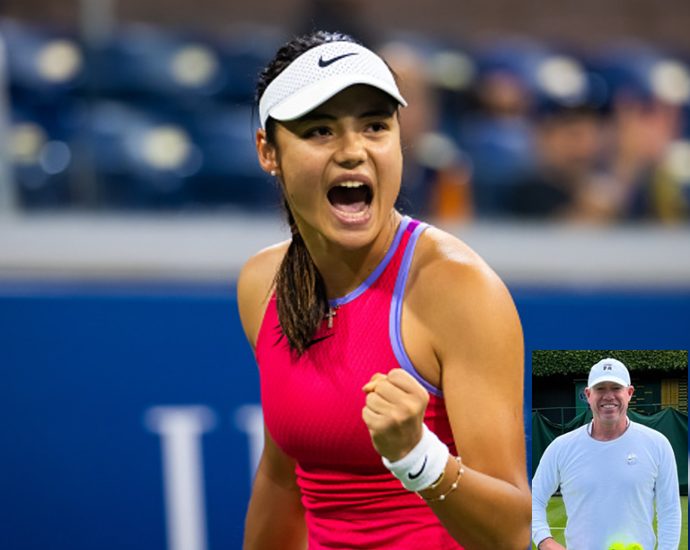
In the world of professional sports, particularly tennis, the relationship between a player and their coach can significantly impact performance and career trajectory. Emma Raducanu, the young British tennis sensation who shot to fame with her stunning victory at the 2021 US Open, has found herself at the center of a whirlwind of commentary regarding her coaching decisions and the nature of her collaboration with various trainers. Mark Petchey, a seasoned coach and former hitting partner to Andy Murray, recently weighed in on this topic, providing insights into his experience coaching the 21-year-old athlete and addressing some of the criticism she has faced.
Petchey, who worked with Raducanu for ten months, has openly acknowledged that she possesses a strong-willed and sometimes stubborn disposition. While he admits that this trait can present challenges, he also emphasizes that stubbornness can be an asset in the competitive world of tennis. “In the 10 months we worked together, I was even more impressed by her application, desire, and inquisitive nature to learn about the game,” Petchey stated in a recent interview. He believes that this drive is essential for success in a sport that demands not only physical skill but also mental resilience and adaptability.
The criticism directed at Raducanu often revolves around her frequent coaching changes and the perception that she may be difficult to work with. Critics argue that her coaching carousel—having worked with Petchey, Nigel Sears, and Andrew Richardson—indicates a lack of stability and direction in her career. Following her historic triumph at the US Open as a qualifier, where she dazzled the tennis world with her poise and skill, questions arose regarding her coaching choices and whether they were hindering her development as a player.
In defense of Raducanu, Petchey points out that some of the accusations leveled against her are unfounded. He emphasizes that Raducanu’s quest for understanding the game often leads to probing questions that her coaches may struggle to answer. This intellectual curiosity, he argues, should be viewed as a positive trait rather than a negative one. “You need to have a certain self-reliance; you need to be able to put things to one side and entertain thoughts that you don’t necessarily always need to implement into your game,” he explained. Such traits are vital for any athlete aiming to refine their skills and approach the game with a unique perspective.
As of this season, Raducanu has been working with Nick Cavaday, a coach known for his ability to nurture talent and foster an environment of growth and improvement. Petchey noted that Cavaday is one of the best coaches Raducanu has collaborated with since their time together. This ongoing partnership is crucial as Raducanu seeks to establish a consistent performance level in a sport notorious for its unpredictability.
Beyond the technical aspects of coaching, Petchey recognizes the external pressures Raducanu faces as a public figure in the spotlight. “I think it’s important for her to block out the noise,” he advised. The tennis community and the media often offer unsolicited opinions on a player’s performance and personal decisions, which can add stress to an already demanding profession. Petchey underscores the importance of staying focused and not allowing outside commentary to influence her mindset. “Everyone’s going to have an opinion on her and broadcast it, but people are trying to insert themselves into her shoes, which they have never worn before,” he remarked.
The transition from junior success to professional stardom is fraught with challenges, and Raducanu’s journey is no exception. The pressure to replicate her US Open success while navigating the complexities of the professional circuit can be overwhelming. However, with supportive figures like Petchey and Cavaday in her corner, there is optimism that she can continue to grow as a player and achieve her potential.
As Raducanu continues her journey in the world of tennis, she will undoubtedly face more challenges and scrutiny. Yet, with her determination, strong work ethic, and the right coaching support, the future remains bright for this talented young athlete. Petchey’s reflections serve as a reminder that while criticism may abound, the true measure of an athlete lies in their ability to learn, adapt, and ultimately thrive amidst adversity.
Leave a Reply